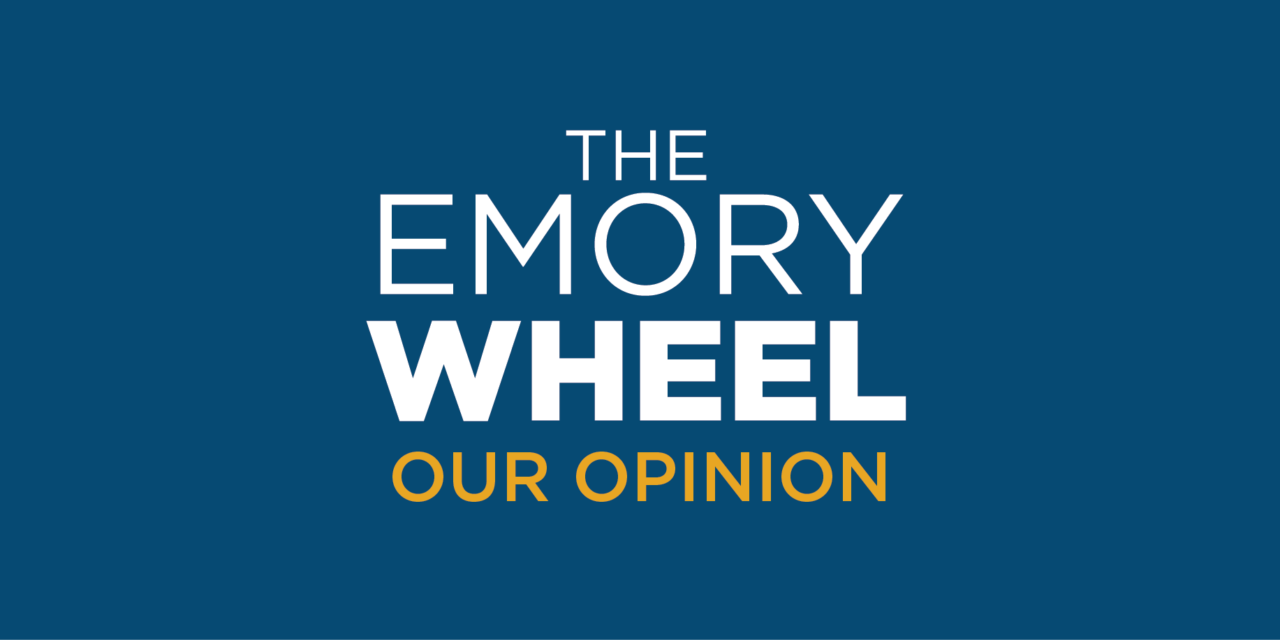Following the announcement of last year’s department changes came the promise of reinvestment in new, interdisciplinary studies in Emory College. In September 2012, five committees were created to lead exploration and growth in the areas of Chinese Studies, New Media Studies, Neuroscience, the Undergraduate Science Experience and Interdisciplinary Science and Teaching.
In an email to the Wheel, College Dean Robin Forman wrote these faculty-led committees are in the process of exploring expansion options in their respective areas. These committees are not necessarily creating new departments at Emory; rather, they are interested in enhancing the interdisciplinary potential of their projects, Forman wrote. The Digital Studies and New Media Across the Art and Sciences Committee, chaired by Sociology professor Timothy Dowd, will release its findings soon, according to Forman. We at the Wheel have a vested interest in the continuation of journalism at Emory, and we hope to see the University make major investments in media studies in the future. We have several recommendations that we feel would make media studies a vibrant element of the Emory College experience.
Currently, courses in media studies are offered as a minor within the umbrella of the Film and Media Studies Department.
We hope to see the department enhance its selection of core course offerings. The Media Studies minor requires seven courses and is highly interdisciplinary: courses are housed within sociology, anthropology and other departments. It certainly makes sense that media studies would be so inclusive – as there is room for an understanding of media in every major academic area – but we would like to see more courses at Emory dedicated specifically to the study of media itself. For instance, Boston University offers an acclaimed media studies graduate program with core courses on digital literacy and the social science of emerging media. Students with a genuine interest in media careers will benefit from a stronger set of core courses in which to learn the ethics and practice of media.
Furthermore, Media Studies should take advantage of the myriad of resources available to students at Emory and in Atlanta. Forman wrote in his email that the committee will explore ways to incorporate the library’s resources into the curriculum, and we see this as a great development. Emory also has the incredible opportunity to interact with some of the world’s biggest television networks: CNN, Cartoon Network, Adult Swim, TBS and TNT are all headquartered just a few miles away from campus. We would love to see course offerings that allow students to interact with these networks and give students an immersive experience.
We see a few key areas for the expansion of new media studies at Emory. Photography is one vital area of media that should be emphasized, especially in light of Emory no longer having a Visual Arts department. Courses on the history of photography and photography theory are essential, considering the trend toward visual storytelling in media today. More courses focusing on social media and its role in politics and social interaction should also be added. Additionally, we recognize that media is constantly evolving, and journalism in 2014 looks completely different than it did a few years ago. Therefore, we would like to see media studies offerings that embrace the fluidity and adaptability of media platforms and allow students to explore the cutting edge of innovation in the field.
In conclusion, we hope that the College will continue to invest in the growth of media studies. Without a focus on media, the University runs the risk of falling behind other colleges with more extensive resources for students in this area. We want Emory to be able to attract students interested in these fields, rather than push them elsewhere. Though the mediums and methods of media consumption are changing rapidly, we believe that good journalism – the effective and ethical communication of public information – still has a vital place at Emory’s college and in the world at large.
The above staff editorial represents the majority opinion of the Wheel’s editorial board.
The Emory Wheel was founded in 1919 and is currently the only independent, student-run newspaper of Emory University. The Wheel publishes weekly on Wednesdays during the academic year, except during University holidays and scheduled publication intermissions.
The Wheel is financially and editorially independent from the University. All of its content is generated by the Wheel’s more than 100 student staff members and contributing writers, and its printing costs are covered by profits from self-generated advertising sales.




